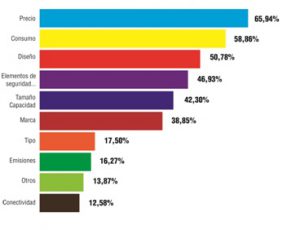Esta web utiliza cookies para que podamos ofrecerte la mejor experiencia de usuario posible. La información de las cookies se almacena en tu navegador y realiza funciones tales como reconocerte cuando vuelves a nuestra web o ayudar a nuestro equipo a comprender qué secciones de la web encuentras más interesantes y útiles.
En base a la Directiva 2009/316/CE; el Reglamento General de Protección de Datos (RGPD); la Ley 3/2018 de Protección de Datos (LOPDGDD); la Ley 34/2002 de Servicios de la Sociedad de la Información y Comercio Electrónico (LSSI) y demás normativa aplicable, PONS SEGURIDAD VIAL S.L. (en adelante, «PONS SEGURIDAD VIAL») como prestador del servicio, te informa, como Usuario del sitio web, del uso de cookies en el mismo. PONS SEGURIDAD VIAL pone a tu disposición esta Política de Cookies referida al Sitio Web operado bajo el dominio www.ponsseguridadvial.com (en adelante, «el Sitio Web»).





